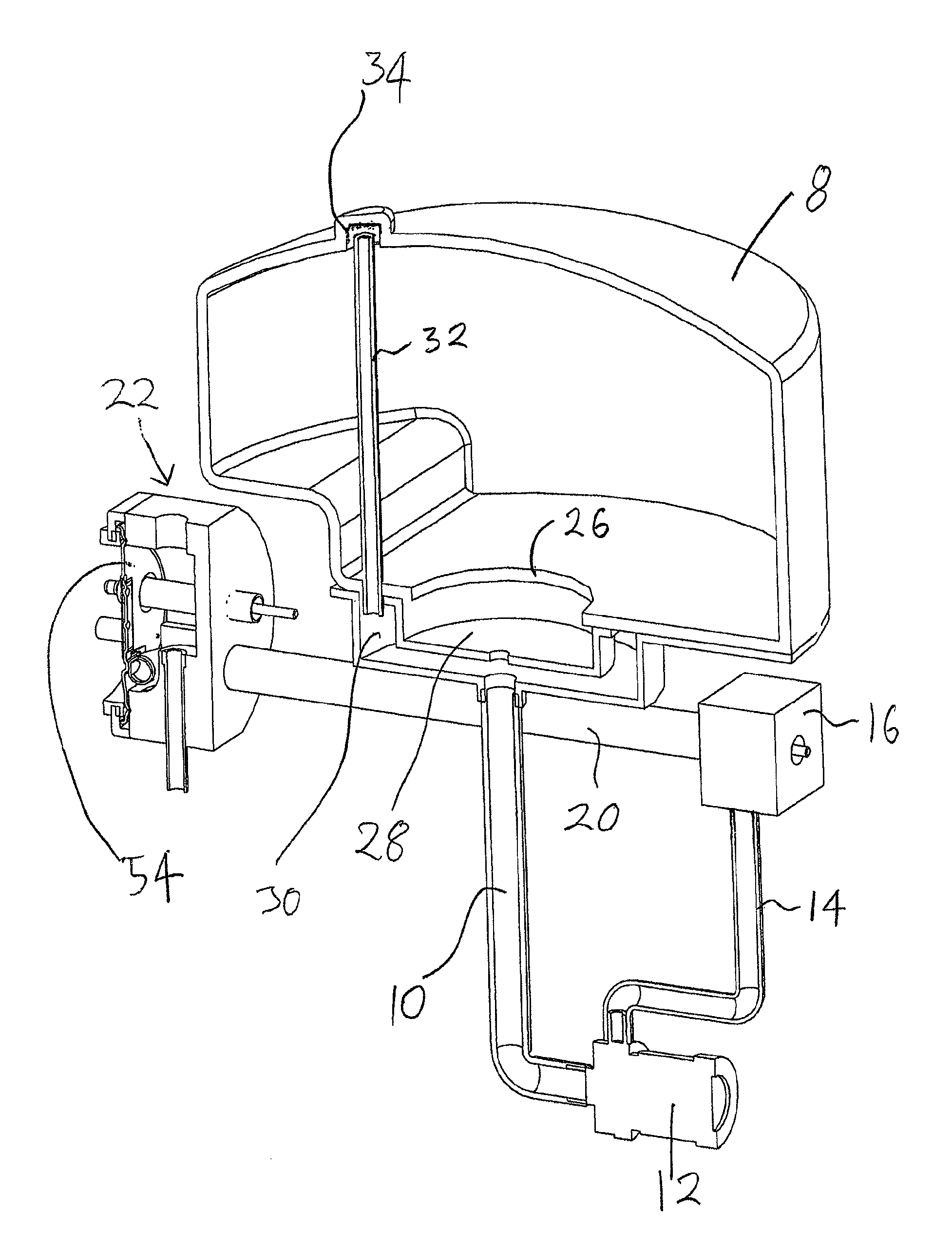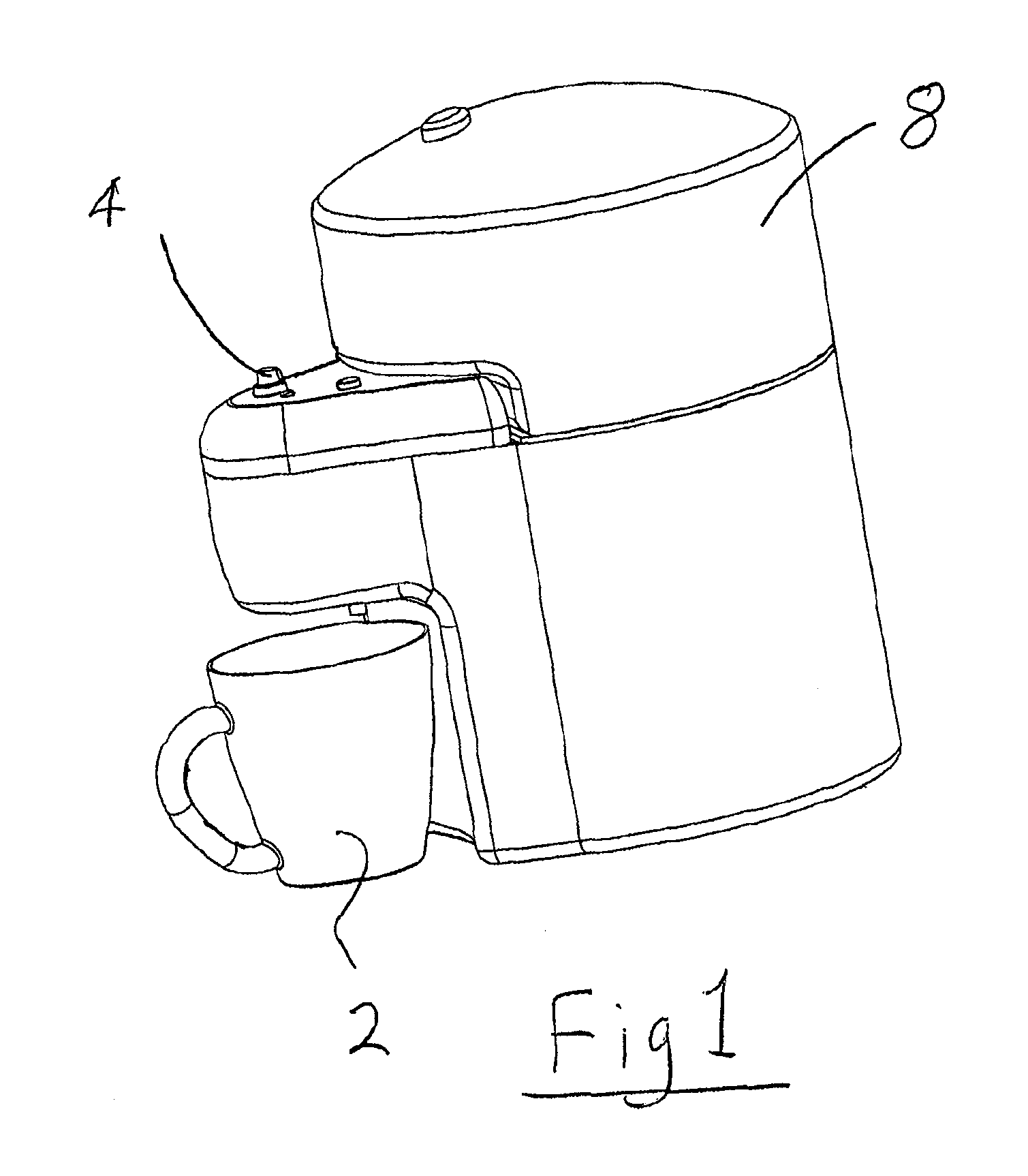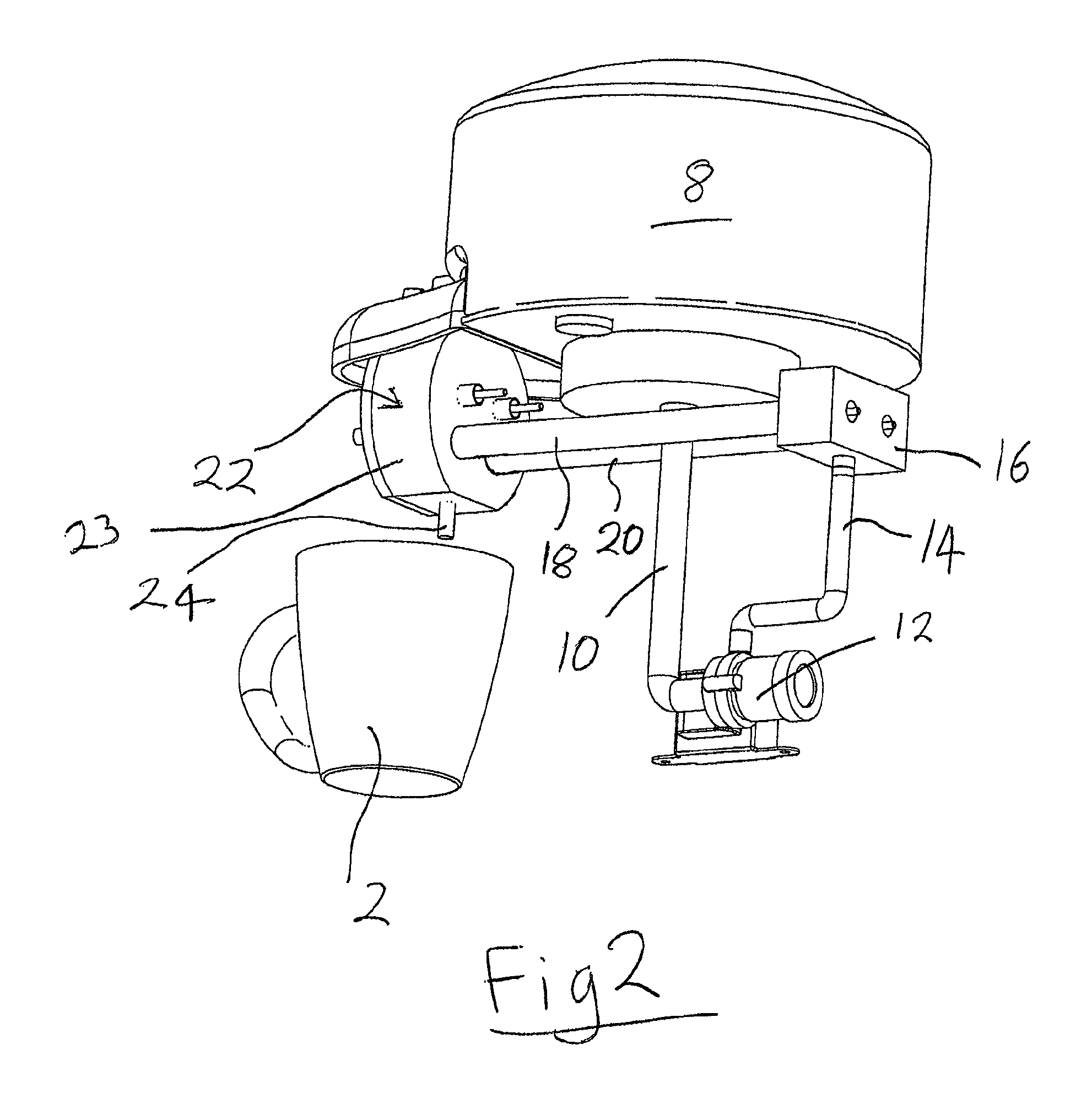Flow heaters
a flow heater and heater technology, applied in the field of flow heaters, can solve the problems of limiting the efficiency with which water can be heated, overheating of heating elements, and significant drawbacks of technology, and achieve the effects of reducing heat loss, enhancing safety, and reducing the loss of hea
- Summary
- Abstract
- Description
- Claims
- Application Information
AI Technical Summary
Benefits of technology
Problems solved by technology
Method used
Image
Examples
Embodiment Construction
[0104]FIG. 1 shows an embodiment of the invention which can be used to dispense heated water, on demand into a cup 2 for making hot beverages. The temperature of the water can also be adjusted by turning a knob 4. The dispense temperature can be varied, for example, from 65° C. to nearly 100° C. The amount of water to be dispensed is controlled by a second knob (not shown). On the upper part of the main part of the apparatus is a water tank 8 which must be filled periodically by a user.
[0105]FIG. 2 shows some of the main internal components of the apparatus with other parts omitted for clarity. From here may be seen the water tank 8, extending downwardly from which is an outlet pipe 10 connected to the inlet side of a pump 12. The outlet side of the pump 12 is connected via a tube 14 to a water distribution plenum block 16 which distributes water entering the block between two parallel flow heater sections 18, 20 together forming a first heating region, as will be explained in great...
PUM
 Login to View More
Login to View More Abstract
Description
Claims
Application Information
 Login to View More
Login to View More - R&D
- Intellectual Property
- Life Sciences
- Materials
- Tech Scout
- Unparalleled Data Quality
- Higher Quality Content
- 60% Fewer Hallucinations
Browse by: Latest US Patents, China's latest patents, Technical Efficacy Thesaurus, Application Domain, Technology Topic, Popular Technical Reports.
© 2025 PatSnap. All rights reserved.Legal|Privacy policy|Modern Slavery Act Transparency Statement|Sitemap|About US| Contact US: help@patsnap.com



